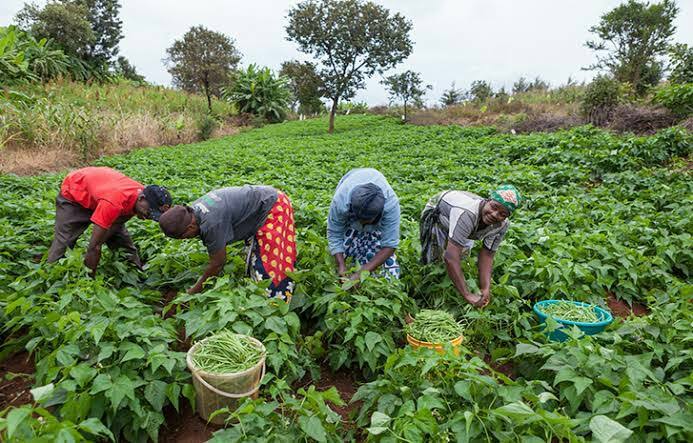AS farmers prepare to embark on dry season farming, the Federal Government has been urged to support farmers across the country in the areas of crops they have comparative advantage or they can produce on a large scale.
Recall that the Minister of Agriculture and Food Security, Senator Abubakar Kyari during his maiden press conference, said at the immediate, the government will embark on aggressive dry season farming to produce more food for the populace.
The Minister said “the most pressing action we are currently handling is preparation for the next dry season farming beginning from November 2023. To this end, some preparatory activities have been carried out and many are at the advanced stage.
Some of the activities according to the Minister include “certification of available planting materials for some food security crops in readiness for dry season farming. Aggressive promotion and preparation for dry season farming, which commences from November this year.
“Implementation of the dry season wheat production starting in November 2023 as part of the National Agricultural Growth Scheme and Agro Pocket (NASG-AP) projects funded by the African Development Bank”.
He said the scheme targets the production of over 70,000 hectares of wheat production zone of the country with expected yield of 875,000 metric tons for the food reserve.
Reacting, the President All Farmers Association of Nigeria (AFAN), Arc Kabiru Ibrahim urged the government not to concentrate on crop for the dry season farming, instead they should identify crops that are staple to regions and support farmers there to produce them in a large scale.
“The government should not just concentrate on one crop, they should go to every region and look at the staples in those regions and make sure that the production of those staples is done all year round. That is the only way you will get food security in Nigeria.
“Like rice for instance, I did my NYSC in Owerri in 1983, I will go to a restaurant to ask for food, they will tell me there was no food, but there was rice. So rice is not a staple crop in the South East at that time, and till today I don’t think that rice is the foremost food that the South Easterners or South-South will eat.
“The same thing with if you take sorghum to Lagos or South-South, what will they do with it? Or wheat, what will they do with it? So you must identify those commodities that are staple in those regions and embark on producing them year round to achieve self-sufficiency which will in turn bring food security to Nigeria, because it is the whole country that requires food security not region”, he said.
The AFAN president further urged the government to support farmers with irrigation facilities, and also utilise the dams and ground water technology to provide water to farms during the dry season farming.
Also, Ibrahim encouraged the government not to limit their support to farmers to a particular season, adding that no country can be self-sufficient in food production by producing crops in only one season.
“The government must provide water for the farmers to plant this dry season, the dams may not be sufficient, we have to explore the issue of ground water as well. There is no need for new dams; we just need canals in the dams so that we can expand the irrigable lands.
“Then the farmers must choose good seeds of a staple food in a region and make it work year round, not only during the dry season.
“We must explore ground water farming, people do not get food security by producing during the rainy season”, the AFAN president added.
. TheWitness







